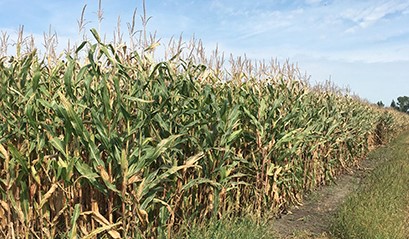’Suicide is real,’ tweeted Kim Keller
By Diego Flammini
Assistant Editor, North American Content
Farms.com
One tweet from a Gronlid, Saskatchewan farmer has sparked conversations on mental health within the province’s agricultural community.
“#Ag we gotta do more. I received a message yesterday that kept me up thinking of how we do more. Farm stress is real. Suicide is real,” Kim Keller posted on Twitter on June 24.
Keller spoke out after receiving a message that a family is looking for resources after a member of the province’s agricultural community took their own life.
Her initial tweet gained momentum, with Saskatchewan Premier Brad Wall reaching out to Keller and asking her to contact the provincial Ministry of Agriculture.

“I have lost count of the direct messages, texts and phone calls I’ve received from people sharing their stories and offering to help and support any way they can,” Keller said in a June 27 APAS release. “This shows me that as an industry we are ready to tackle this issue head on.”
Facing the tough spring in Saskatchewan this year could be a first for producers and contribute to high stress.
“It’s been a tough year,” Todd Lewis, president of APAS, said in the statement. “We need to keep talking about this. We know our producers are feeling the pressure.”
The issue of mental health within agriculture has been studied in detail over the last few years on both sides of the border.
Earlier in the month, University of Iowa research concluded 230 members of America’s agricultural community committed suicide between 1992 and 2010.
Self-reliance, personal illness, long work days, loneliness and isolation are factors that could lead a farmer to self-harm, according to the research.
And in 2016, research from the University of Guelph indicated Canadian farmers are vulnerable to mental health issues.
More than 1,000 producers from across the country participated in the 2015 study on mental health.
45 per cent of respondents said they had high stress. And 35 per cent were classified with depression.
“What makes me the most upset is that I have everything I dreamed of – love, family and a farm – and all I feel is overwhelmed, out of control and sad,” one respondent said, according to researcher Andria Jones-Bitton.
There are a number of resources available across Canada and the United States for people in need.